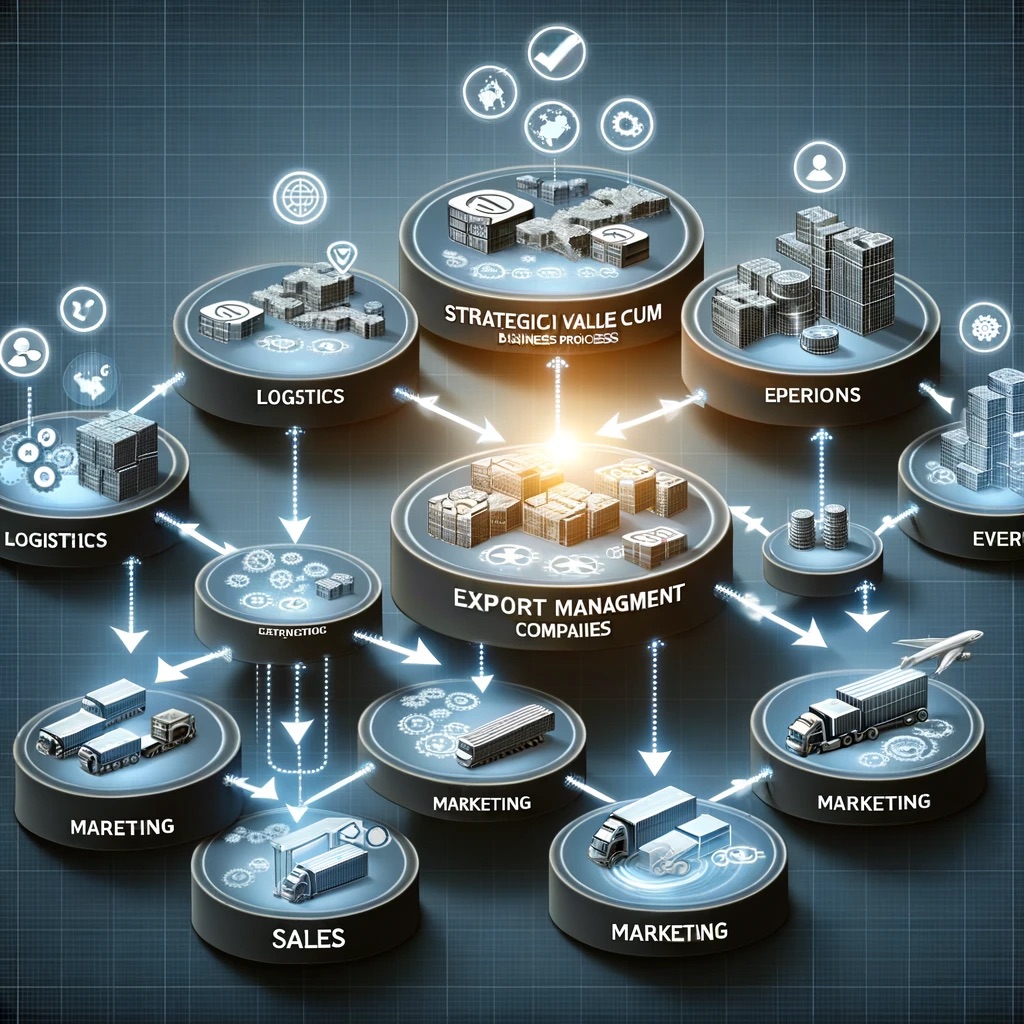Digital Transformation in Export Management: Leveraging Technology for Global Success
In today’s fast-paced global economy, digital transformation is no longer an option but a necessity for businesses seeking to remain competitive. Export Management Companies (EMCs) are at the forefront of this digital revolution, leveraging advanced technologies to optimize export processes, enhance supply chain efficiency, and drive business growth. This essay explores the critical role of digital transformation in export management, highlighting the technologies that are reshaping the industry and the significant benefits they bring.
The Need for Digital Transformation
Global trade is becoming increasingly complex, with businesses facing fluctuating demand, regulatory changes, and supply chain disruptions. To navigate these challenges, companies must adopt digital tools that provide real-time visibility, predictive insights, and streamlined operations. EMCs play a pivotal role in facilitating this transition, offering digital solutions that enhance every aspect of export management.
Key Technologies Driving Digital Transformation
Several key technologies are driving digital transformation in export management, each offering unique benefits that contribute to global success.
1. Artificial Intelligence (AI) and Machine Learning
AI and machine learning algorithms are transforming the way businesses manage exports. These technologies analyze vast amounts of data to identify patterns, predict trends, and optimize decision-making processes. EMCs use AI to enhance demand forecasting, automate routine tasks, and improve customer service.
Benefits of AI in Export Management:
- Improved Forecast Accuracy: AI-driven demand forecasting reduces errors by 20%, ensuring that businesses can meet customer demand without overstocking.
- Automation of Routine Tasks: Automating repetitive tasks frees up valuable resources, allowing employees to focus on strategic activities.
- Enhanced Customer Service: AI-powered chatbots and virtual assistants provide 24/7 customer support, improving response times and customer satisfaction.
2. Blockchain Technology
Blockchain technology offers a secure and transparent platform for managing trade transactions. By creating a tamper-proof ledger of all transactions, blockchain enhances trust among trade partners and reduces the risk of fraud.
Benefits of Blockchain in Export Management:
- Increased Transparency: Blockchain provides real-time visibility into the status of shipments, reducing disputes and enhancing trust.
- Enhanced Security: The decentralized nature of blockchain makes it difficult for unauthorized parties to alter transaction records, reducing the risk of fraud.
- Streamlined Documentation: Smart contracts automate the execution of trade agreements, reducing paperwork and administrative costs.
3. Internet of Things (IoT)
IoT devices provide real-time monitoring of goods throughout the supply chain. Sensors attached to shipments track parameters such as temperature, humidity, and location, ensuring that products are transported under optimal conditions.
Benefits of IoT in Export Management:
- Real-Time Visibility: IoT devices offer real-time updates on the status of shipments, allowing businesses to respond quickly to potential issues.
- Improved Quality Control: Monitoring environmental conditions ensures that perishable goods are maintained at the correct temperature, reducing spoilage.
- Predictive Maintenance: IoT sensors on equipment provide data on performance and potential issues, enabling predictive maintenance and reducing downtime.
4. Big Data and Analytics
Big data analytics allows businesses to gain deep insights into their operations and market trends. By analyzing data from multiple sources, EMCs can identify opportunities for improvement and make data-driven decisions.
Benefits of Big Data in Export Management:
- Enhanced Decision-Making: Data analytics provides actionable insights that help businesses optimize their export strategies.
- Market Insights: Analyzing market trends and consumer behavior helps businesses tailor their products and marketing strategies to meet customer needs.
- Performance Optimization: Data-driven insights enable businesses to identify inefficiencies and implement targeted improvements.
Case Studies: Digital Transformation in Action
Case Study 1: A Logistics Company Implementing AI
A logistics company faced challenges in predicting demand and managing inventory. By partnering with an EMC and implementing AI-driven demand forecasting, the company achieved a 25% reduction in inventory holding costs and a 30% improvement in order fulfillment times.
Case Study 2: A Food Exporter Utilizing IoT
A food exporter struggled with maintaining the quality of perishable goods during transit. The EMC implemented IoT sensors to monitor temperature and humidity levels in real-time. This technology ensured that products were transported under optimal conditions, reducing spoilage by 20% and improving customer satisfaction.
Quantifying the Benefits of Digital Transformation
The benefits of digital transformation in export management are substantial, as evidenced by key metrics:
- Cost Savings: Businesses report an average of 15% reduction in operational costs due to improved efficiency and automation.
- Increased Efficiency: Digital tools reduce processing times by 25%, ensuring timely completion of export tasks.
- Revenue Growth: Companies leveraging digital technologies see an average of 10% increase in export revenue, driven by enhanced market insights and optimized operations.
The Future of Export Management with Digital Transformation
As technology continues to evolve, the future of export management will be defined by further advancements in AI, blockchain, IoT, and big data. EMCs will continue to play a critical role in helping businesses adopt these technologies and harness their full potential. The integration of these digital tools will provide even greater transparency, efficiency, and agility, ensuring that businesses can thrive in the competitive global market.
Conclusion
Digital transformation is revolutionizing export management, providing businesses with the tools they need to succeed in the global market. Export Management Companies are at the forefront of this transformation, leveraging advanced technologies to optimize export processes, enhance supply chain efficiency, and drive business growth. By adopting AI, blockchain, IoT, and big data analytics, businesses can achieve significant cost savings, improve operational efficiency, and increase revenue. As global trade continues to evolve, digital transformation will remain a key driver of success in export management.





